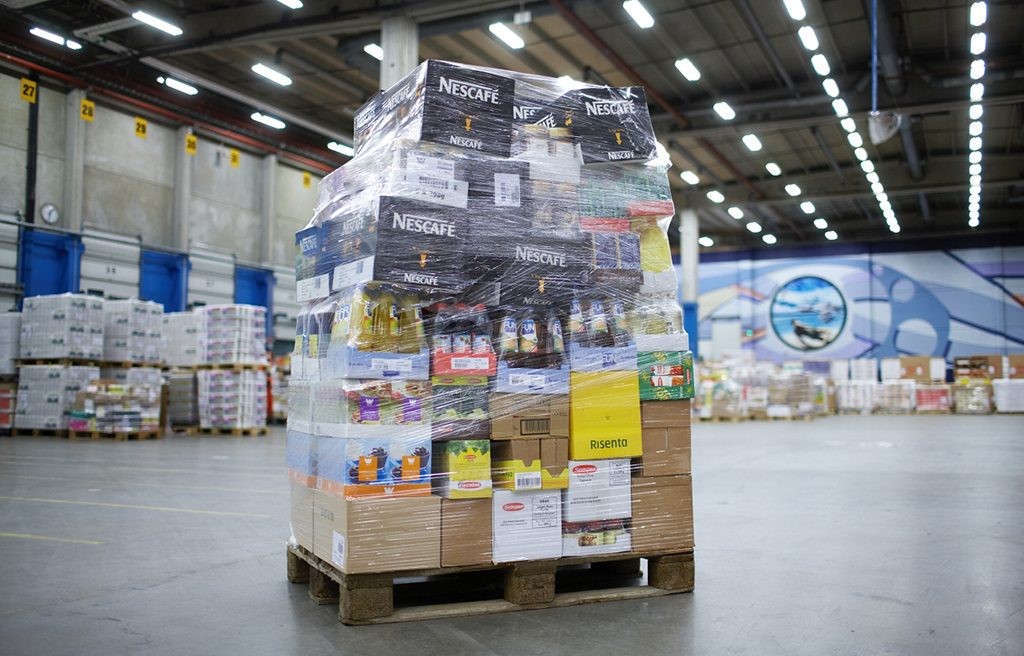DAGAB is the food giant Axfood’s logistics company and it acts as the central warehouse for Axfood and delivers goods to the retail chains Hemköp, Willys and Tempo in Sweden. In other words, DAGAB handles large quantities of food items every day – something that also generates large quantities of waste. Joakim Berggren is the site manager at DAGAB in Jordbro. When he realised how many working hours they spent on handling waste, he decided to do something about it.
DAGAB has two large full-range warehouses, one in Gothenburg and the main warehouse in Jordbro, not far from Stockholm. As a national warehouse, a huge quantity of food is handled daily. Groceries are delivered, packed and sent to over 7,000 stores and customers across Sweden. On average, the entire warehouse stock is turned over every 11 days, and when the goods come in, are repacked and transported onwards, a large volume of waste is generated in the form of packaging.
“Since all of the pallets containing food items have to be coated in plastic, there is a huge amount of waste to deal with,” states Joakim Berggren.
DAGAB used to have one baler for plastic foil in Jordbro. The warehouse employees spent much of their time, equivalent to as much as one or two full-time positions, walking back and forth to the baler to dispose of the plastic, which was compacted into bales. It was this very inefficiency that triggered the idea of a new waste management solution.
Having several compactors reduced the distance the waste was transported inside the warehouse
After DAGAB’s property department assessed the existing situation, listened to colleagues who worked in the warehouse and took their preferences and insight into account, it began to contact various suppliers. DAGAB’s main requirement was that the solution must reduce the time spent on waste handling. Solutions from several different suppliers were considered, but one stood out. Mr Berggren comments:
“It was primarily the functionality and quality of ATS-Orwak’s (compaction equipment supplier and Orwak’s Swedish sales organization) machines that stood out for us. Their service has also been invaluable. I would say that it was around 50/50 on advice and products that determined our choice.”
DAGAB got help to develop a solution that suited the operation at the warehouse in Jordbro. The waste management solution currently comprises several container compactors, balers and one Brickman 300 briquetting machine from Orwak, which are all strategically located in different parts of the warehouse.
Problem-free implementation
Mr Berggren is delighted with the entire process, from order to implementation and DAGAB has received good advice and service.
“We have not come across any problems, aside from the everyday grumbles that always accompany change. I would not do anything differently, if I had the chance, as everything has run very smoothly. I know that help is just an e-mail away, if we need anything. The staff are always good at getting back to us, and I like the fact that they never see problems, just opportunities.”
Are there stages in waste management where you can save time?
For a new waste management solution to be successful, Mr Berggren says it is important to begin by looking at where time can be saved.
“It is important to identify the hours that could be saved. Is too much extra time spent on something that someone could do in passing instead? If you identify these stages, you could make major improvements and streamline the operation.”
“We have now maximized the waste compactors’ performance to enable us to reduce the number of times they need to be emptied and the number of transports. That saves us both time and money.”
Opportunities to further streamline waste management
With the existing solution alone, DAGAB calculated that it is managed to eliminate the workload equivalent of one to two jobs, time that can be spent more productively. Nowadays, employees do not spend any extra time handling and transporting the waste in the warehouse. Instead, the waste is now handled in passing in connection with other work duties. Even though DAGAB has already achieved measurable improvements, it will continue to expand its range of compactors and balers to streamline the operation further and save even more time.

